Vegan Globetrotter is supported by our audience. When you purchase through one of our links, we may earn a small affiliate commission. As an Amazon Associate I earn from qualifying purchases. Your cost is not affected.
==================
Hey there, health-conscious readers! Ever heard of chia seeds? Those tiny powerhouses once treasured by the ancient Aztecs are making a modern comeback, and for all the right reasons. Buckle up as we dive into the incredible world of chia seeds and uncover how they can supercharge your plant-based vegan diet. Ready to enhance your health naturally? Let’s explore the top 10 benefits of incorporating chia seeds into your daily routine!
10 Benefits of Chia Seeds in a Plant-based Vegan Diet: Enhancing Health Naturally
Chia seeds, once revered by the ancient Aztecs as a source of strength, have gained modern acclaim as a superfood in plant-based diets. Packed with an array of nutrients, these tiny seeds bring a multitude of health benefits that align perfectly with a vegan lifestyle.
In particular, their profile rich in omega-3 fatty acids makes them an essential component for those seeking heart-healthy fats without resorting to animal products.
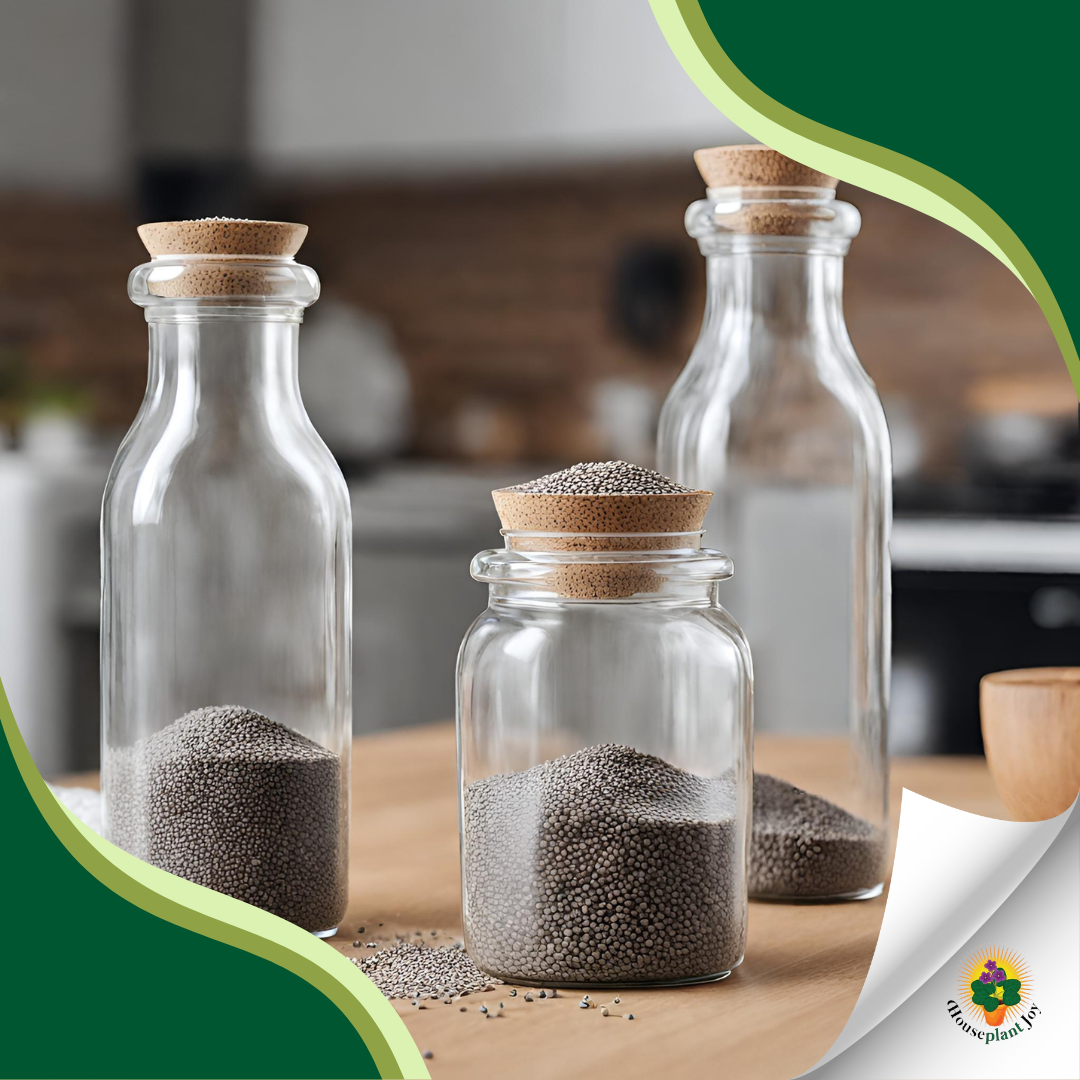
These seeds are more than just a source of fat. They boast a high dietary fiber content that aids digestive health and supports weight management by promoting a feeling of fullness. Furthermore, chia seeds offer a wealth of antioxidants, plant-based protein, essential minerals, and can help maintain hydration and electrolyte balance.
Incorporating chia seeds into a vegan diet not only contributes to individual health improvements but also supports sustainable eating practices. This is because they are a low-impact crop with minimal environmental demands.
Key Takeaways
- Chia seeds enrich plant-based diets with essential fatty acids and protein.
- Their high fiber and antioxidant content supports digestive health and weight management.
- Incorporating chia seeds aligns with sustainable and healthy eating practices.
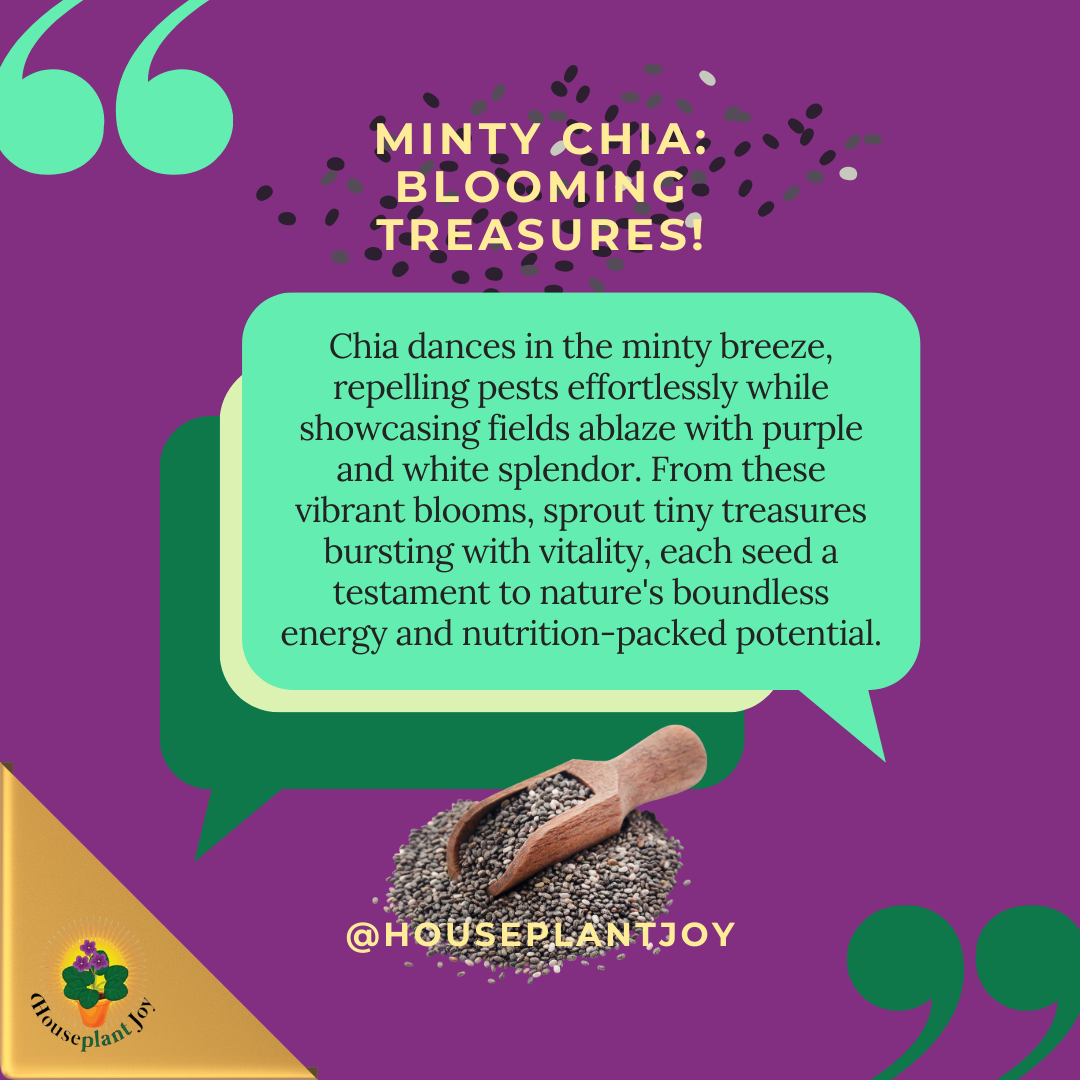
Rich Source of Omega-3 Fatty Acids
Chia seeds stand out in a plant-based vegan diet as an excellent source of omega-3 fatty acids. Omega-3s are essential fats that the body cannot produce on its own, making it important to obtain them through diet.
- Main Omega-3: Alpha-linolenic acid (ALA) is the main type of omega-3 found in chia seeds. ALA is crucial for maintaining heart health and supporting normal brain function.
- Comparison to Other Sources: Chia seeds have a higher concentration of omega-3 fatty acids compared to flaxseeds, making them an especially valuable component of a vegan diet.
Omega-3 Content in Chia Seeds:
| Nutrient | Amount Per Serving (28g) |
|---|---|
| Omega-3 ALA | Approximately 5g |
Including chia seeds in one’s diet contributes significantly to the intake of these fats, which are known for their anti-inflammatory properties.
Usage Tips:
- They can be added to smoothies, sprinkled on salads, or incorporated into baked goods to easily increase omega-3 intake.
By choosing chia seeds, vegans can ensure they are receiving a plant-based source of these healthy fats, contributing to their overall nutrient intake and supporting their dietary choices. Chia seeds’ versatility and nutrient density make them a staple in vegan nutrition.
High Dietary Fiber Content
Chia seeds are an exceptional source of dietary fiber, making them a staple in a plant-based vegan diet. Just one ounce (approximately 28 grams) of chia seeds contains nearly 10 grams of dietary fiber, which is about 35% of their total weight. This contributes significantly to the recommended daily intake of fiber for adults.
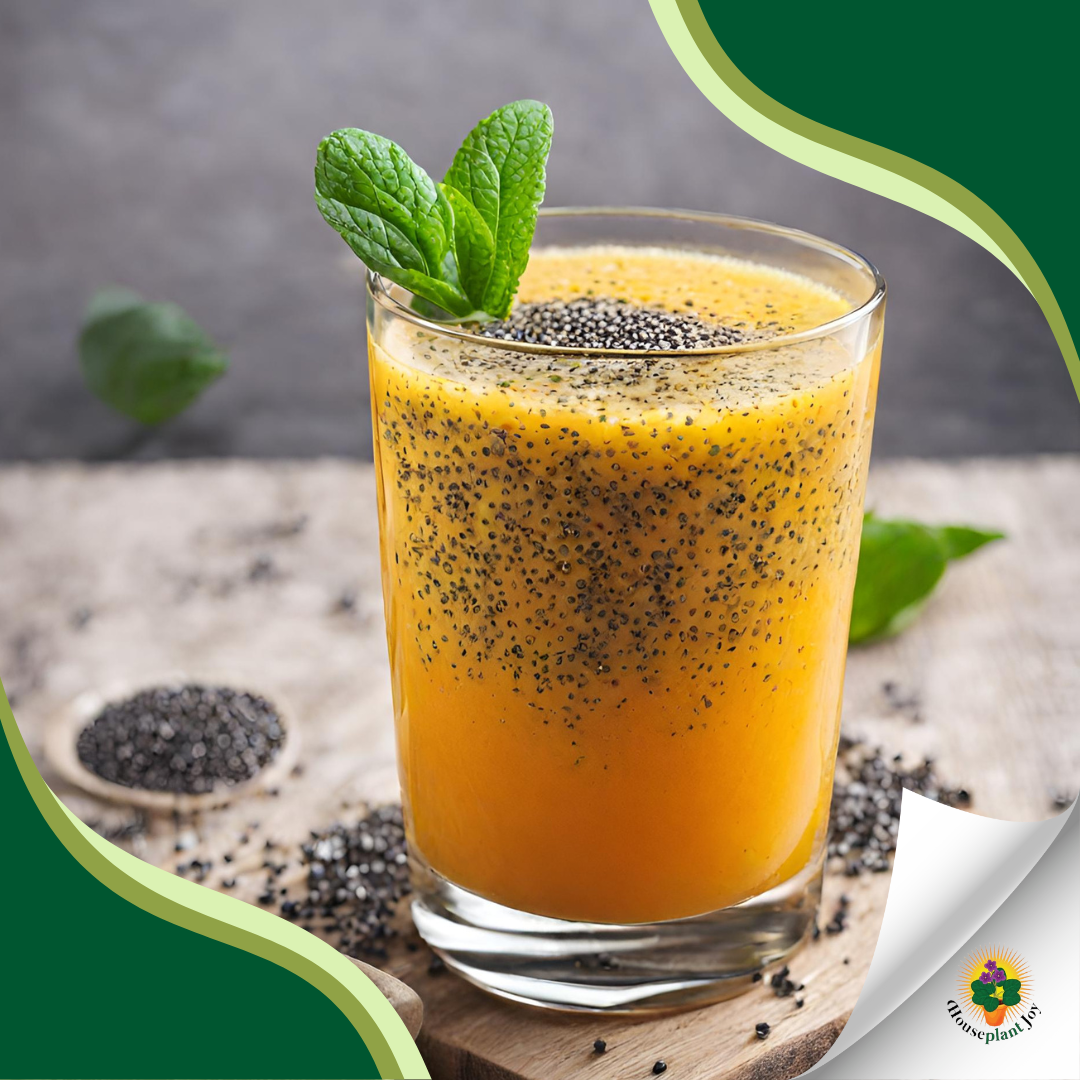
The soluble fiber in chia seeds plays a crucial role in maintaining digestive health. When chia seeds are consumed, they absorb water and expand in the stomach, which can help one feel fuller for a longer period and may assist in weight management efforts.
| Nutrient | Amount in 1 oz of Chia Seeds | Percentage of Daily Value* |
|---|---|---|
| Dietary Fiber | 10 grams | 40% |
*Based on a 2,000 calorie diet
In addition to their ability to promote satiety, the high fiber content helps to ensure smooth digestion by promoting regular bowel movements. This makes chia seeds an effective natural remedy for preventing constipation, which is common in diets lacking in adequate fiber.
For individuals following a vegan lifestyle, incorporating chia seeds into meals is a simple way to boost the fiber content of various dishes without compromising taste or texture.
Antioxidant Properties
Chia seeds are a significant source of antioxidants, molecules that help protect the body’s cells from damage by free radicals. The antioxidants in chia seeds include chlorogenic acid, caffeic acid, myricetin, quercetin, and kaempferol.
These compounds are known for their roles in preventing cell damage, which is crucial as cellular damage can lead to aging and diseases like cancer.
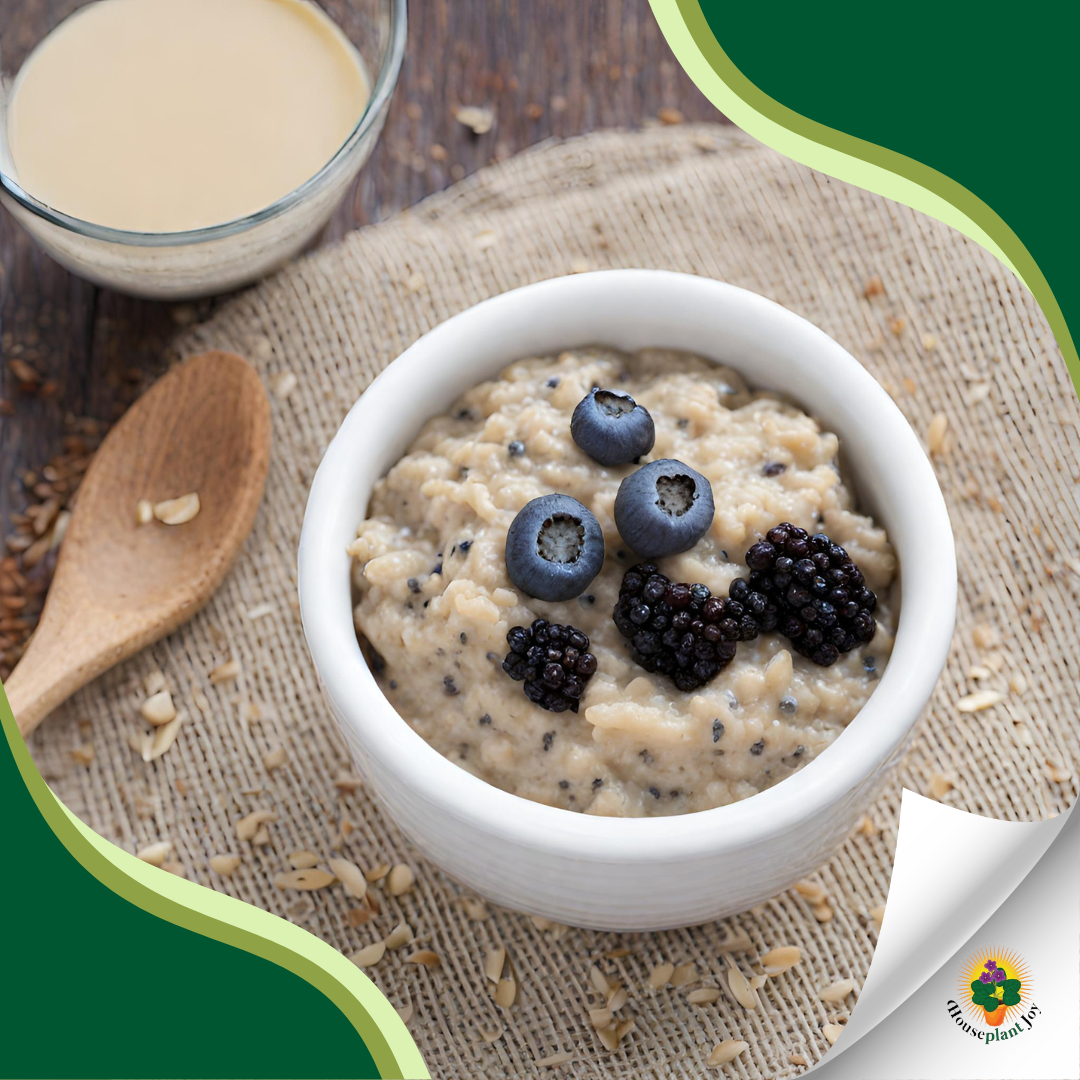
Key Antioxidants in Chia Seeds:
- Chlorogenic acid
- Caffeic acid
- Myricetin
- Quercetin
- Kaempferol
Chia seeds’ antioxidants contribute to their long shelf life, preventing the fats in the seeds from going rancid. For individuals following a vegan diet, chia seeds offer a potent dose of these health-promoting compounds without the need for animal-derived foods, which are typically avoided in such dietary patterns.
The inclusion of chia seeds in a vegan diet helps provide a plant-based source of antioxidants, which can support the body’s defense against oxidative stress. Consuming a range of antioxidant-rich foods is considered beneficial for maintaining overall health. As noted in literature, antioxidants in one’s diet may help protect against chronic diseases (The 9 Benefits of Adding Chia Seeds to a Vegan Diet – LIVEKINDLY).
Supports Healthy Weight Management
Chia seeds have gained acclaim in plant-based vegan diets primarily for their role in fostering weight management. Through appetite regulation and offering nutrient-dense calories, they serve as an excellent food choice for individuals looking to maintain or achieve a healthy weight.
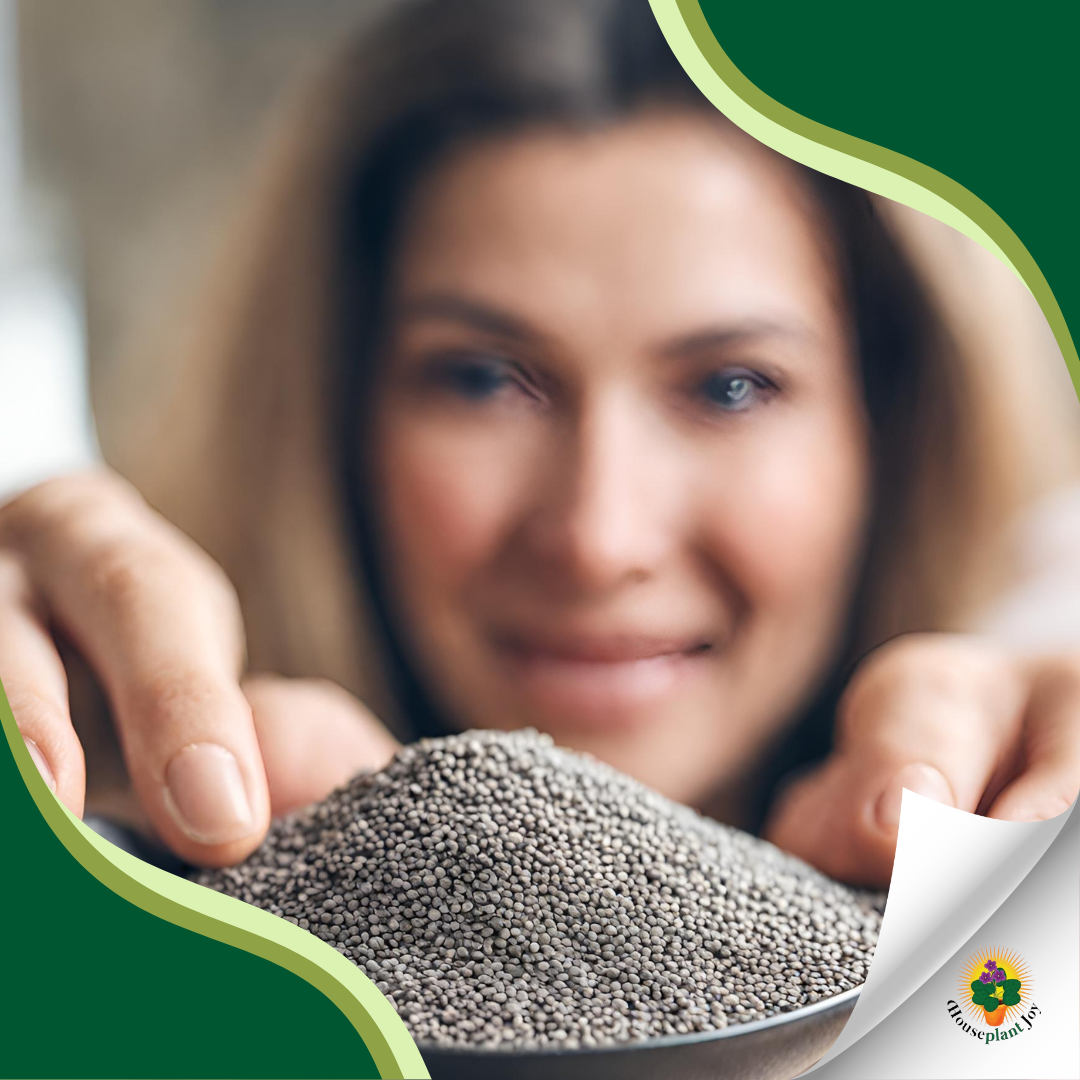
Appetite Control
Chia seeds absorb water and expand in the stomach, creating a feeling of fullness which can reduce overall appetite. The gel-like substance formed by chia seeds when ingested has a delaying effect on gastric emptying, consequently diminishing the urge to eat more and assisting in regulating caloric intake.
Calorie Conscious Nutrition
With a nutritional profile high in fiber and quality protein, chia seeds contribute to a feeling of satiety without adding excessive calories. This combination helps maintain energy levels while keeping calorie intake in check, supporting weight management efforts within a vegan dietary framework.
Plant-Based Protein Advantage
In the context of a plant-based vegan diet, chia seeds stand out as an excellent protein source. They contain about 19% protein, which is significant compared to other seeds and even many grains.
The protein from chia seeds can help stabilize blood sugar levels and provide a consistent source of energy throughout the day.
Key Points about Chia Seeds:
- High in quality protein
- Contains all nine essential amino acids
This complete amino acid profile is crucial for muscle repair, immune function, and overall health. The incorporation of chia seeds into one’s diet aligns with the need for a balanced variety of proteins from plant-based sources.
Moreover, chia seeds can contribute to a feeling of fullness, which may aid in weight management. Their high fiber content works in tandem with protein to slow digestion and prolong satiety. Chia seeds do not just offer protein; they come packed with fiber and omega-3 fatty acids, making them a powerhouse of nutrition.
In practice, their versatility allows for easy addition into meals. One can sprinkle them on salads, blend into smoothies, or mix into plant-based yogurt, increasing both nutrient value and textural interest.
Promotes Cardiovascular Health
In a plant-based vegan diet, the inclusion of chia seeds can be particularly beneficial for maintaining cardiovascular health.
These tiny seeds are a rich source of omega-3 fatty acids, especially alpha-linolenic acid (ALA), which can help in reducing inflammation and lowering the risk of heart disease.

Chia seeds also contribute to heart health by fostering the reduction of LDL cholesterol, which is often referred to as ‘bad’ cholesterol. Lower levels of LDL are associated with a decreased risk of atherosclerosis, the build-up of plaques that can lead to heart attacks and strokes.
A 2021 review of studies reinforced the effectiveness of chia seed consumption in lowering total cholesterol, LDL cholesterol, and triglyceride levels while increasing HDL cholesterol, known as ‘good’ cholesterol.
Moreover, the high fiber content in chia seeds aids in regulating blood pressure and reducing hypertension, a major risk factor for heart disease. Fiber can also help maintain stable blood sugar levels, preventing the spikes that strain the cardiovascular system.
To sum up the elements promoting cardiovascular health:
- Omega-3 Fatty Acids: Reduces inflammation and heart disease risk
- Fiber: Helps regulate blood pressure and blood sugar levels
- LDL Cholesterol: Lowered to help reduce atherosclerosis risk
- HDL Cholesterol: Increased to protect against heart disease
Bone Health and Essential Minerals
Chia seeds significantly contribute to bone health by providing a rich source of essential minerals. These nutrients are particularly important in a plant-based vegan diet, where traditional sources of minerals such as dairy are not consumed.
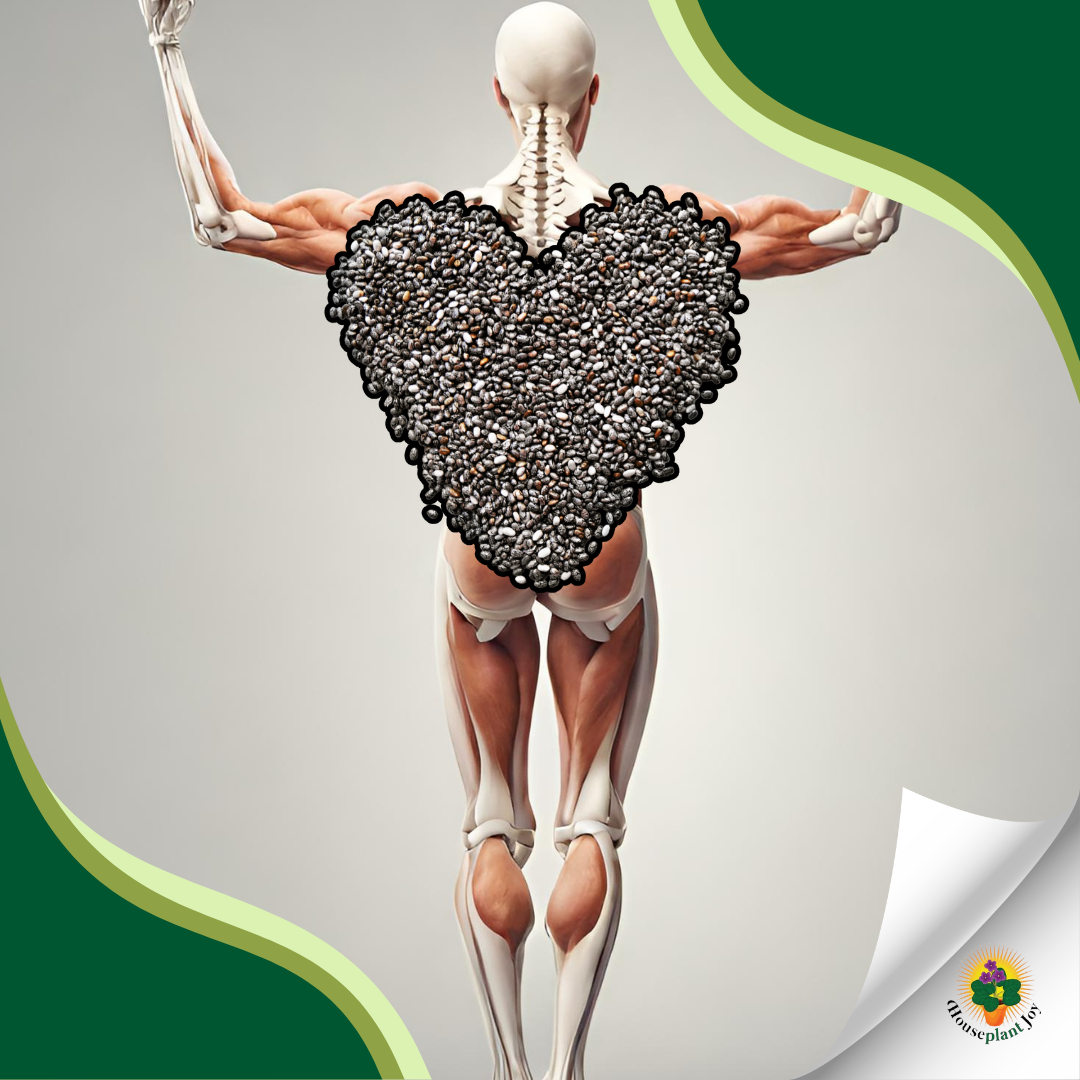
Calcium
Chia seeds are an excellent plant-based source of calcium, a vital mineral for maintaining bone density and structure. Just one ounce of chia seeds contains about 18% of the Recommended Dietary Allowance (RDA) for calcium, making them a crucial component for vegan diets.
Magnesium
Apart from calcium, chia seeds are also a good source of magnesium, another key mineral essential for bone health. Magnesium aids in the management of bone mineralization and is pivotal for proper muscle function and nerve transmission.
Enhanced Digestive Health
Chia seeds are a noteworthy addition to a plant-based vegan diet, particularly due to their fiber content.
One finds that a mere 28 grams (roughly 2 tablespoons) of chia seeds contains approximately 11 grams of fiber. This amount constitutes almost half of the recommended daily intake for adults, making chia seeds an excellent source of this essential nutrient.
Fiber plays a pivotal role in digestive health by:
- Promoting regular bowel movements: It helps form stool and aids in its passage through the gut, reducing the likelihood of constipation.
- Prebiotic activity: The fiber in chia seeds acts as a prebiotic, providing nourishment for beneficial gut bacteria which are crucial for a healthy digestive system.
- Managing inflammation: Some studies suggest that the intake of high-fiber foods like chia seeds may help manage inflammation in the gut.
The types of fiber present in chia seeds, mainly insoluble and soluble, collaborate to enhance the absorption of nutrients. They do this by slowing down digestion, which allows the intestines more time to absorb nutrients from foods.
Moreover, chia seeds can absorb a significant amount of water and expand in the stomach. This not only can give a feeling of fullness, which helps with weight management, but can also ensure smoother digestion.
Hydration and Electrolyte Balance
Incorporating chia seeds into a plant-based vegan diet can significantly contribute to hydration and maintaining electrolyte balance. These seeds have a unique ability to absorb water. They can absorb as much as 12 times their weight when soaked. This property can help to prolong hydration and retain electrolytes in the body.
Electrolytes, such as sodium, potassium, and magnesium, are vital for the body’s fluid balance, nerve transmission, and muscle function. Chia seeds contain these key electrolytes that are essential for maintaining the body’s hydration status.
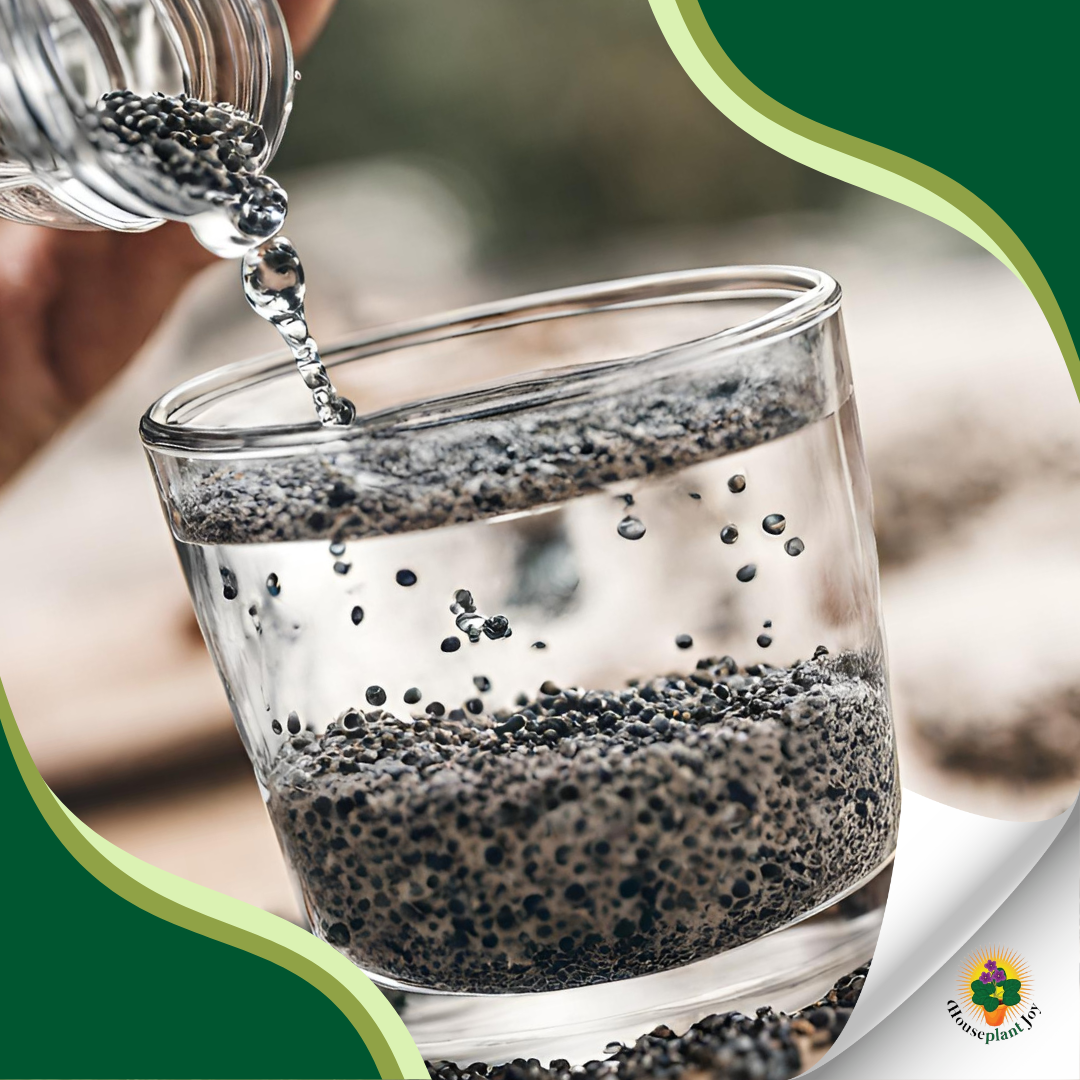
A diet incorporating chia seeds may be particularly beneficial for athletes or individuals with an active lifestyle. During exercise, electrolytes are lost through sweat, and thus must be replenished. Chia seeds in water offer a plant-based way to assist with this replenishment.
Adding chia seeds to beverages or meals can thus offer two-fold benefits:
- Enhanced water absorption for sustained hydration
- Supply of essential electrolytes to maintain balance
Here is a breakdown of chia seeds’ contributions to hydration and electrolyte content:
| Nutrient | Benefit for Hydration and Electrolyte Balance |
|---|---|
| High Fiber | Aids in water absorption and retention |
| Omega-3 Fatty Acids | Supports cell membrane function, impacting hydration |
| Minerals | Source of electrolytes like calcium, magnesium, and potassium |
Regular consumption of chia seeds can be an effective and natural way to support hydration and electrolyte balance within a vegan diet.
Contribution to Sustainable Eating Practices
Chia seeds play a crucial role in sustainable eating practices within a plant-based vegan diet.
Water Use: One of the key advantages of chia seeds is their low water requirement. Compared to common crops such as wheat or corn, chia plants require significantly less water, making them an eco-friendlier option.
Land Use Efficiency: Chia seeds are also notable for their land use efficiency. They have the ability to grow in marginal soils where other crops might not thrive. This trait makes chia seeds a potential crop for reclaiming otherwise underutilized land, contributing to food sustainability.
Biodiversity: When grown in crop rotations, chia plants can enhance soil health and biodiversity. They serve as a refuge for pollinators and beneficial insects, which are vital for the ecosystem’s balance.
- Crop Resilience: Chia seeds are resilient. They can withstand harsh climatic conditions and still produce a good yield. This resilience makes them a reliable food source as the climate changes.
- Nutrient Density: Finally, the nutritional profile of chia seeds is impressive. They are densely packed with essential nutrients like fiber, protein, and omega-3 fatty acids, which are crucial for a vegan diet. This allows individuals to meet their dietary needs with less quantity of food, thereby reducing the overall impact on resource use.
Embrace the Chia Revolution: Nourish Your Body, Nurture the Planet
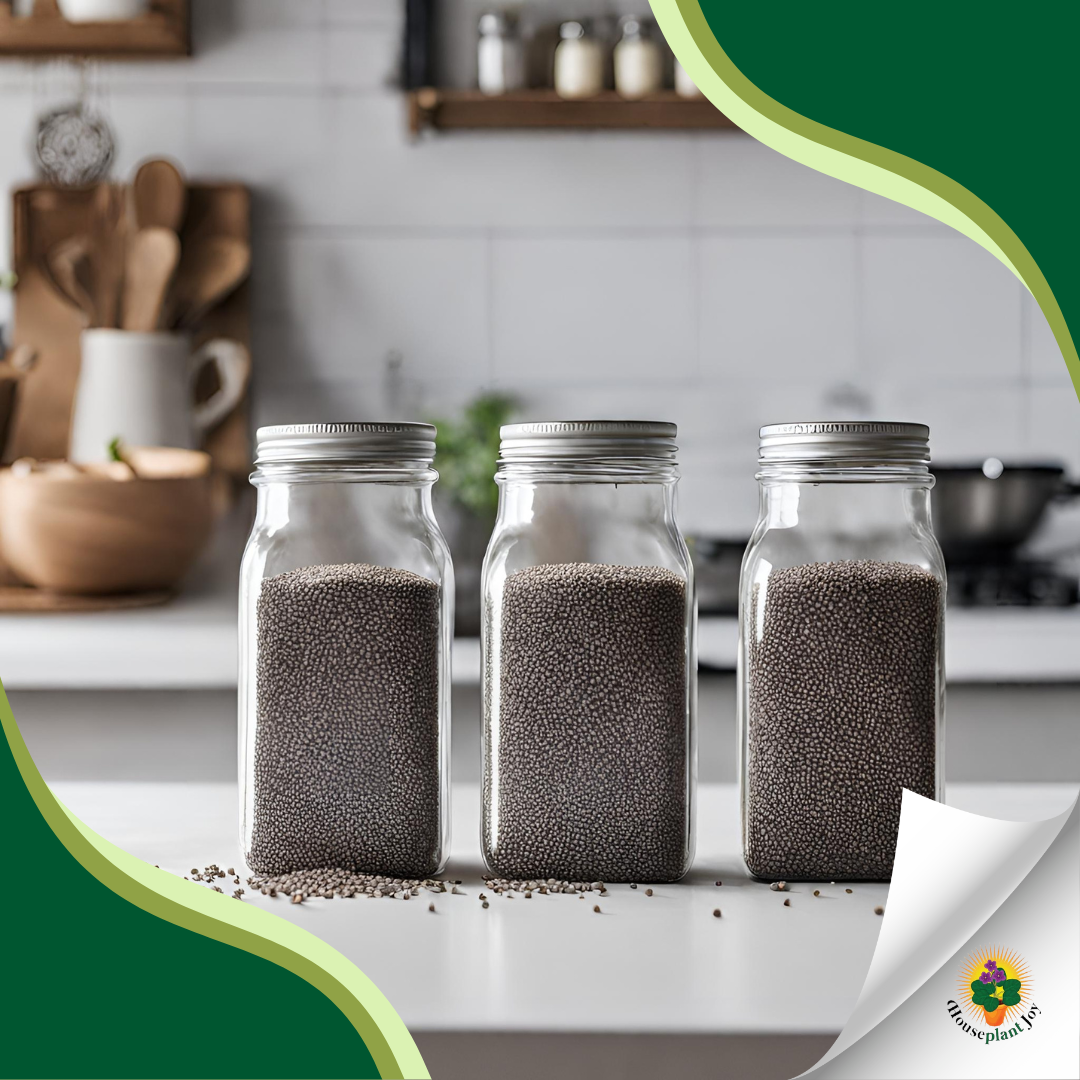
As we wrap up our journey through the incredible benefits of chia seeds in a plant-based vegan diet, it’s time to take action! Picture this: a sprinkle of chia seeds on your morning smoothie, a dash added to your favorite salad, or a generous mix in your afternoon snack. These simple steps not only boost your health but also support sustainable living. So, let’s make a pact to embrace the power of chia seeds in our daily lives. Together, we can nourish our bodies and nurture the planet. Are you ready to join the chia revolution? Let’s sprinkle, blend, and enjoy the goodness of chia seeds starting today!
Frequently Asked Questions
In this section, readers will find detailed answers to queries regarding chia seeds’ effects on health and how they can be incorporated into a vegan diet for various benefits.
Can chia seeds improve overall digestive health?
Chia seeds are an excellent source of dietary fiber, important for digestive health. Their fiber content aids in promoting regular bowel movements and can help prevent constipation.
How do chia seeds impact hormonal balance in females?
They contain beneficial fatty acids and antioxidants that may contribute to hormonal balance. However, research is ongoing, and one should consult healthcare professionals for personalized advice.
What are the potential risks associated with consuming chia seeds?
Chia seeds are generally safe for consumption, but they can absorb significant amounts of water, potentially causing choking if not prepared correctly. It’s crucial to soak them and ensure adequate hydration when consuming them.
In what ways can chia seeds contribute to a vegan diet's protein needs?
Chia seeds are comprised of about 20% protein a great plant-based protein source, offering a full complement of essential amino acids which is often needed in a vegan diet.
How can including chia seeds in my diet benefit my cardiovascular health?
They are abundant in omega-3 fatty acids, which have been demonstrated to support heart health by reducing blood pressure and inflammation.
What daily amount of chia seeds is considered safe and beneficial?
For adults, approximately 15-20 grams of chia seeds per day is often recommended. Children should consume less, in proportion to their age and size.
Connect with Us! Explore Vegan Delights & Chia Goodness
Discover a vibrant community passionate about veganism, health, and the wonders of chia seeds! Dive into engaging content, insightful product reviews, and connect with like-minded individuals across our social media platforms:
- Facebook: HousePlantJoyBlog
- Instagram: houseplantjoy20
- Pinterest: houseplantjoy
- Twitter: houseplantjoy
- YouTube: HousePlantJoy
- TikTok: houseplantjoy
Join us as we share the joys of plant-based living and explore the endless possibilities of chia seeds together!

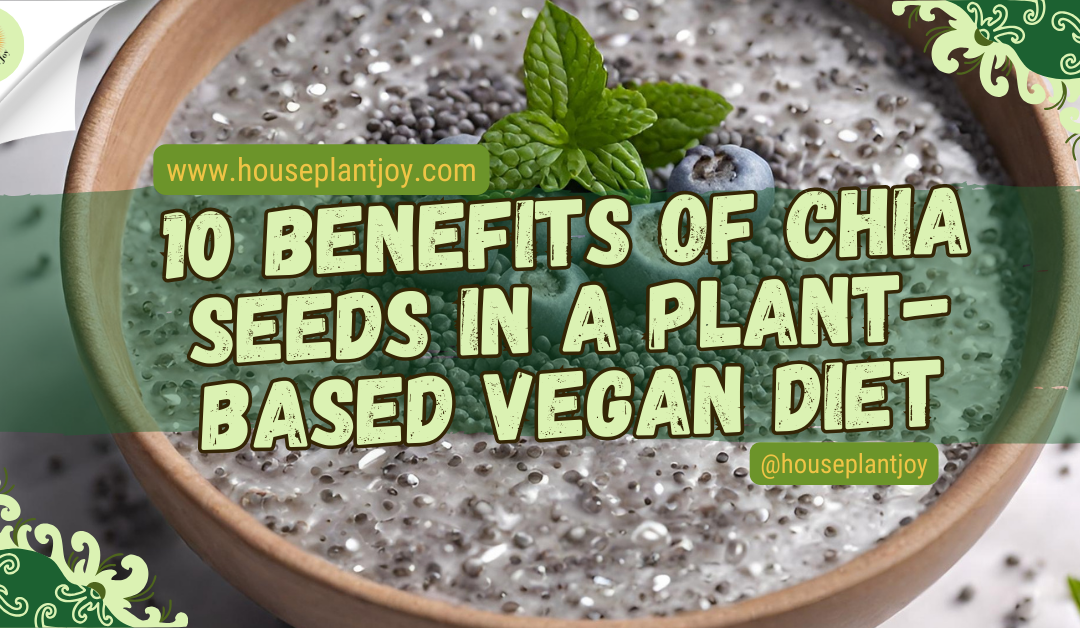

Don't miss out
when new recipes and information are added!
Join our newsletter for free recipes,
healthy living inspiration, and special offers
You have Successfully Subscribed!